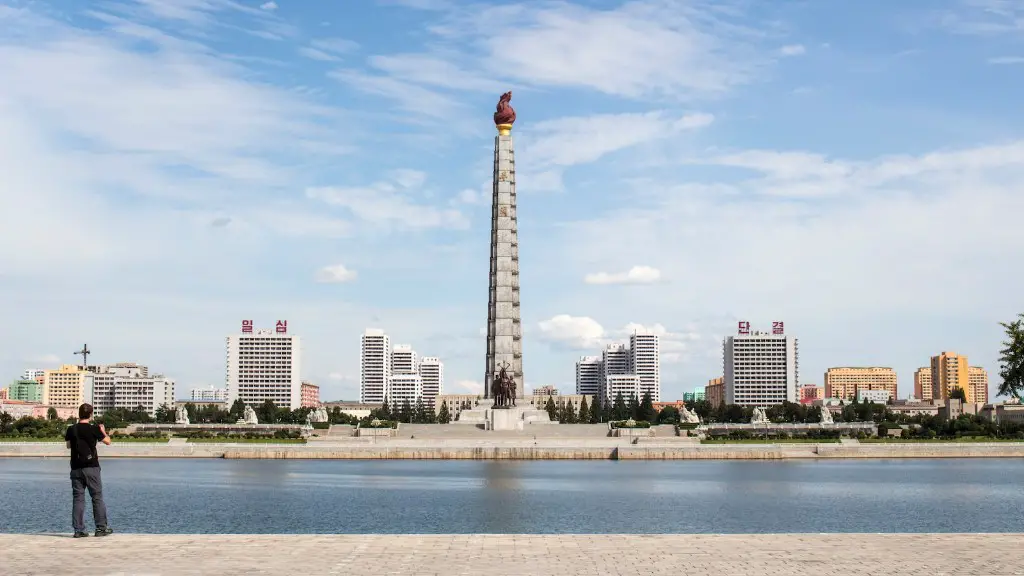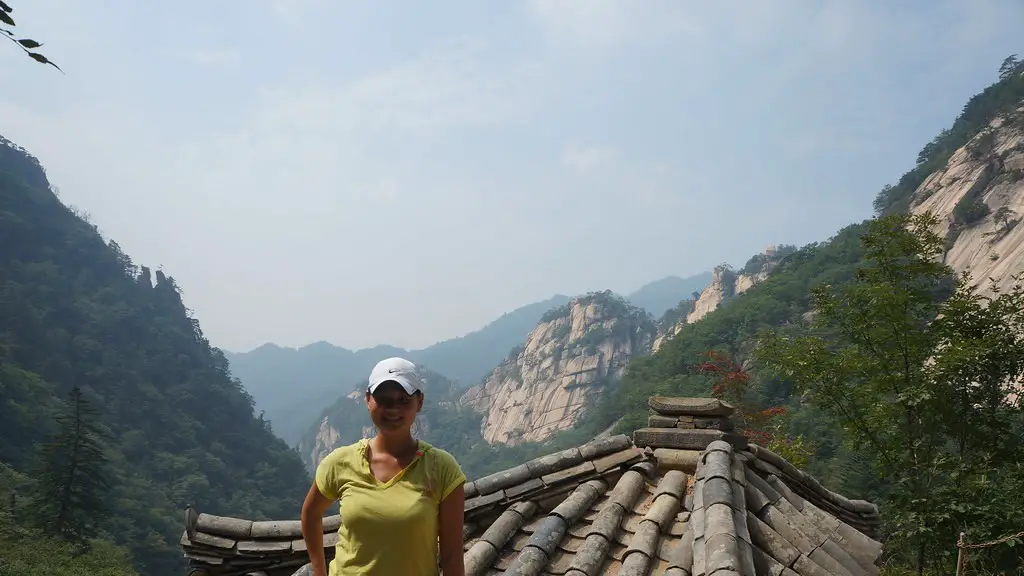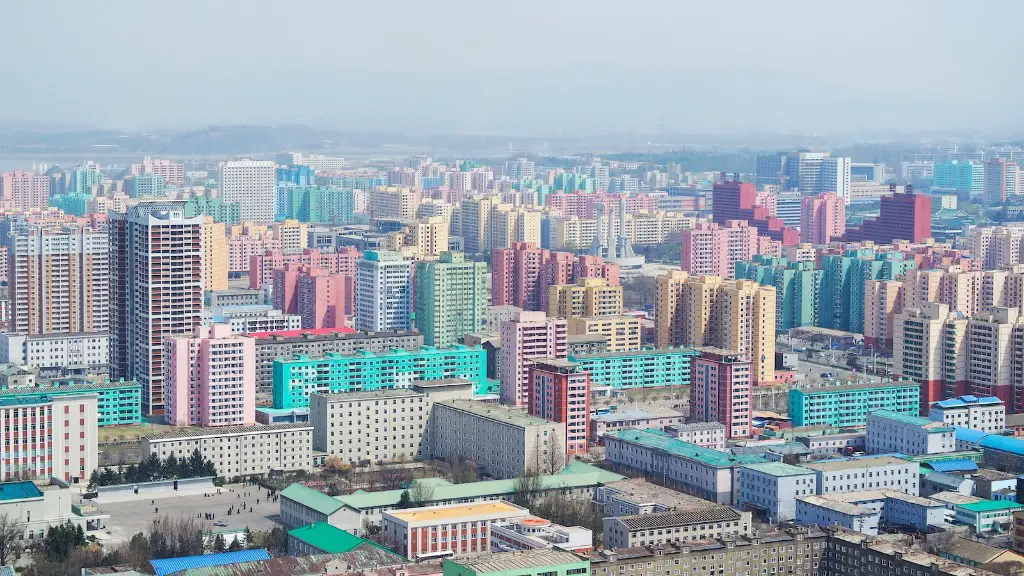Central Government of North Korea
North Korea is an authoritarian state where the power and authority of the government is concentrated in the hands of the “Dear Leader”. The government of North Korea is a unitary, one-party totalitarian structure, comprising the ruling Korean Workers’ Party, the National Defence Commission, and the Cabinet.
The Supreme Leader of the North Korean government is head of state. The current leader is Kim Jong Un, with other high-level officials in the ruling party, such as Choe Ryong Hae, Kim Yong Nam and Pak Pong Ju, acting as advisers or “collaborators”. Legally, the Supreme Leader has the right to appoint and remove government ministers, making the government largely responsible to him.
The National Defence Commission is the highest body of the North Korean military. It is headed by the Supreme Leader and is responsible for foreign and security policies in North Korea. This commission is said to be the most powerful body in the government. The executive branch is headed by the DPRK Council of Ministers, which is responsible for the management of the economy, foreign and domestic policy, finance, science, culture and education.
The unicameral Supreme People’s Assembly is the legislative branch of the government. It is composed of 687 members, who are elected by the people to five-year terms. The Supreme People’s Assembly is said to be the only real form of public participation in government. However, in reality the elections are no more than a formality and voting is done in the context of the “one-country, two-systems” system, since the Korean Workers’ Party hold all power.
The judicial system in North Korea is based on Communist ideologies, with the top court being the Central Court of North Korea, or the Supreme Court. The court is said to be highly politicised and politically motivated. It is presided over by the Supreme Leader and is believed to be no more than a puppet of the government.
Economic System of North Korea
The economy of North Korea is a centrally planned system, with the government controlling all means of production and distribution. The economy is largely closed off to the outside world, except for a few trade and aid partners, such as China and South Korea. As a result, the country suffers from food shortages, poverty and its citizens have limited access to basic goods and services.
The government has implemented various economic development plans over the years; however, most of these efforts have failed due to the lack of resources, as well as the difficulty of implementing economic reforms in an authoritarian state. North Korea’s economy is based largely on the sale of natural resources and the manufacture of weapons and military equipment, as well as food and light industry products.
The government has also attempted to introduce foreign investment into the economy, through the establishment of designated export processing zones, and the Special Economic Zone in Gaeseong, which is an area of North Korean territory which is officially open to foreign investors. However, most foreign investment has been limited due to both international sanctions and the general desire of most foreign investors to avoid North Korea’s high levels of corruption and political risk.
Political System of North Korea
North Korea’s political system is highly authoritarian and oppressive. The main political entity in the country is the Korean Workers’ Party, which has held a virtual monopoly on power since its establishment in 1948. There is no true multi-party system in the country, with all political activity outside of the Korean Workers’ Party strictly forbidden. All government and military personnel, as well as most private citizens, are members of the Korean Workers’ Party.
The Korean Workers’ Party is led by the Supreme Leader and is organised into a number of different factions and sub-factions, which are presided over by the leadership. The Supreme Leader holds ultimate authority in the country, and can appoint and remove all government ministers at will. As a result, the political system in North Korea is highly unstable and unpredictable.
The media in North Korea is strictly controlled by the government, with most newspapers and television broadcasts devoted purely to praising the leadership and emphasising their policies. This means that the majority of the population of North Korea have little to no access to external news and information, and the few sources of media information available are heavily censored. In addition, the internet is heavily restricted and all foreign websites are blocked.
Foreign Policy of North Korea
The foreign policy of North Korea is largely hostile towards the West and its allies, which it perceives as hostile and threatening. The government also maintains an aggressive stance towards its neighbours, particularly South Korea and Japan, which it sees as historical enemies.
North Korea is a signatory to the Non-Proliferation Treaty and has consistently denied any involvement in the production or possession of nuclear weapons. However, in 2006 and 2009, the government tested nuclear weapons, leading to harsh international criticism and sanctions.
The government continues to pursue a policy of isolationism, with most forms of foreign travel and communication strictly controlled by the government. Considerable restrictions are placed on citizens’ access to foreign media and information, and it is very difficult for North Koreans to communicate with people outside of the country. This has meant that the country has become increasingly isolated from the outside world, with only a limited number of people allowed to travel abroad.
International Relations of North Korea
North Korea has strained relations with many countries in the international community, particularly with the United States and other Western nations. These countries strongly oppose the government’s development and testing of nuclear weapons and its harsh policies towards its own citizens.
The government also has few allies in the international community. It is close to both China and Russia, and is a member of the Non-Aligned Movement. North Korea is also a member of the United Nations. However, relations with both China and Russia have become strained due to their disagreement over the nuclear issue.
Human Rights Situation in North Korea
The human rights situation in North Korea is among the worst in the world. The government has consistently been accused of widespread and systematic human rights abuses, ranging from arbitrary detention and the use of torture to the use of forced labour and the restriction of freedom of expression.
In addition, the government has been accused of wide-scale repression of religious freedom and the suppression of political opposition. There is strong evidence that the government engages in extrajudicial killings and that its prisons are overcrowded and inhumane. The government also restricts access to food and aid for its citizens, especially in rural areas.
North Korea’s citizens have limited access to the outside world, with most forms of communication with the outside world strictly controlled. This limits the amount of information that its citizens can access, with the government providing only a very limited view of the world and its own policies. As a result, many North Koreans have very little knowledge of the outside world and its customs.
Economic Development of North Korea
North Korea has experienced a number of economic crises over the years, with the majority of its citizens struggling to survive on meager food rations and minimal access to basic goods and services. In addition, the lack of foreign investment and the continued international sanctions have meant that the country has struggled to modernise and develop its infrastructure.
The government has recently stated its intention to pursue a policy of “economic opening”, although this has so far been limited to a few export-processing zones and the Special Economic Zone at Gaeseong. However, even with these limited efforts, the economic situation in North Korea remains dire, with poverty, malnutrition and inequality still rampant across much of the country.
Cultural Life in North Korea
The culture of North Korea is heavily influenced by the cult of the Supreme Leader and the Korean Workers’ Party. The arts and literature in the country is heavily censored, with most culture and entertainment devoted to praising the government and emphasising their policies.
In terms of art and literature, most works are highly nationalistic and patriotic, with themes such as revolutionary heroism, loyalty to the Korean Workers’ Party, and honouring the memory of the fallen. Music is heavily influenced by Korean traditional music, with popular songs being heavily censored and limited to loyalist-themed songs. Film and television are also heavily censored, with most films and television shows being glorified propaganda pieces.
Sports also remain a major part of North Korean culture, with the government frequently using it as a form of propaganda and promotion for the country. Football and basketball are particularly popular in North Korea, with the national team and its athletes having achieved great success in international competitions.
Conclusion
North Korea is an authoritarian, totalitarian state, where the power and authority of the government is concentrated in the hands of the Supreme Leader, and the Korean Workers’ Party maintains a virtual monopoly on power. The economy of North Korea is heavily controlled and dominated by the government, with the traditional economy largely composed of natural resources, food and light industry products, and arms exports. The foreign policy of North Korea is largely isolationist and hostile towards the West, while its citizens face severe human rights abuses and limited access to the outside world.


